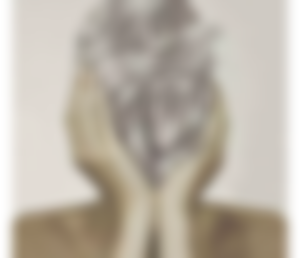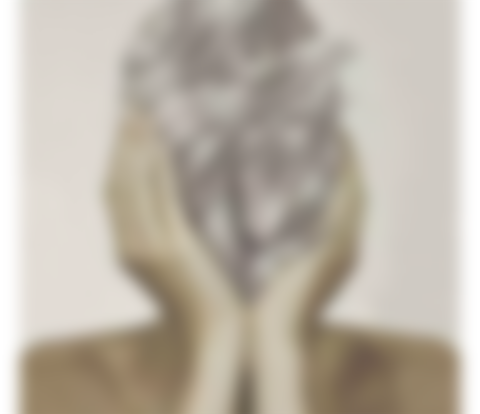The Convergence Crisis
I had just turned 30 when I drove a 12ft removal van around Lower Manhattan, navigating 2O blocks with a death grip on the steering wheel, too terrified to turn off my hazard lights.
I was moving out of the spacious apartment I’d shared with my husband of five years, and into a cramped flat with a roommate.In my haze of sadness, I’d insisted on driving the van myself, in the misguided belief that it would help me to feel empowered as I embarked on my newly single life.
Cut to 32-year-old me. After publishing a book in my twenties, my second book proposal failed to get a contract. I’d naïvely assumed that one book would naturally lead to two books, three, four.
That my career was on an inevitable uphill trajectory towards ‘making it’ – where I’d achieve critical acclaim, enough money to write full time, and invitations to parties thrown by famous writer friends.
At 34, I’ve finally got my bearings, professionally and personally. But wait, what am I holding? Surprise! It’s a positive pregnancy test! We’ve only been together for five months, but turns out that practising safe sex offers no guarantees.
Then there’s me at 35, sobbing with joy as I hold my baby for the first time, my heart full in the way you’re told it will be.

And me a few weeks later, sobbing as I struggle to breastfeed around the clock, exhausted and overwhelmed, not to mention scared I’ll never have time or be rested enough to write again.
Our thirties are more of a biological and financial pressure cooker than ever, especially for women.
Key demographic milestones – marriage, having kids, buying a house – are converging in this decade for more and more of us. It’s a time when we’re reckoning with various ‘shoulds’ – we should be married and have a baby (or two), be more successful, be happier.
Even when we get what we wanted, it’s not always how we thought it would be, which is its own kind of reckoning. Our current self-help culture insists that with enough hard work, grit, ambition and vision boards, we can achieve greatness in all areas of our lives.
We’re encouraged to rebrand failures as opportunities, to believe that we alone control our destinies. It follows, then, that if life zigzags or veers entirely off course, we only have ourselves to blame.
Even proactively changing course can feel like failure when you’ve been schooled to persevere at all costs because the only failure is giving up on something.
I spent the first half of my free-spirited twenties backpacking, and I was still screwed up from my parents’ divorce, so I never planned to marry young. But I was more shocked to find myself divorced.
My thirties have been a convergence of unhelpful myths butting up against my lived experiences
If I had to sum up the reasons with Twitter-type efficiency, I’d say we were one of those heady young romances that slowly disintegrates as each person grows into the adult version of themselves, and realises those versions are incompatible.
In addition to the emotional wreckage, it left me feeling like by 30 I’d failed at one of adulthood’s Most Important Things.
A few years later, I had to admit that I wasn’t cut out for the financial insecurity of freelance life. I took a day job, as many artists do. It was a necessary compromise, yet I felt like I was giving up.
Wouldn’t a real artist pursue her art, even if she was poor as a result? I found myself fantasising about alternate versions of my life as I grappled with the unanticipated zigzags. What if I’d stayed married? Been on The New York Times bestseller list? Had more talent? Made better choices, bolder ones?
For much of the decade, I felt whiplashed when expectations for my grown-up life inevitably clashed with the complicated reality of actually being an adult.
Until finally, as 40 looms, it’s dawned on me that it wasn’t serving me well to spend so much time in ‘what if’ land with the ghosts of what psychologists Hazel Markus and Paula Nurius call our ‘possible selves’ – fantasies about who we’d like to be or might have become.
My thirties have been a convergence of unhelpful myths butting up against my lived experiences, and the realisation that only I could unravel them to grow into my actual adult life. The myth of ‘making it’: a subjective label bestowed on us by other people.
I’ve had to grapple with feelings of failure and regret, as many overachieving recovering perfectionists must at some point in our lives.
Not to convince myself out of these human emotions, but to move through them and ultimately learn to value missteps as part of my gloriously imperfect path as a gloriously imperfect human. To put it simply: I’ve had to learn to be kinder to myself.
Letting go of these myths enabled me to realise how my life, with all its twists and turns, has more potential and power than any fantasy. For me, that has been the biggest takeaway of this decade. Well, that, and to never, ever drive a moving van in Manhattan.

Life is a zigzag of adventure, mystery, it is your own movie. You are still here strong as ever. You go girl!